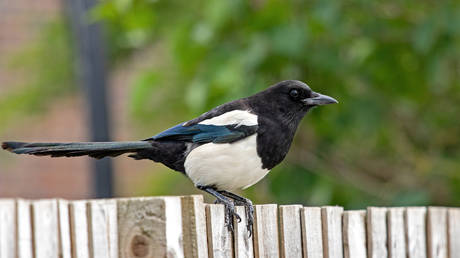
New research claims to show first ever evidence of cooperative ‘rescue’ observed in the birds
Plans to track Australian magpies for a study were thwarted when the birds worked together to remove the devices from one another, according to new research from scientists at the University of the Sunshine Coast.
The behavior marks the first evidence of cooperative “rescue” observed within the animals, the researchers stated, as, within just ten minutes of fitting the final tracker, a female magpie was seen using her bill to remove a younger bird’s harness.
Hours later, most of the birds had been freed from their trackers with the assistance of others in the flock. Days later, even the most dominant bird had allowed another magpie to assist in removing the device, the researchers said.
“We don’t know if it was the same individual helping each other or if they shared duties, but we had never read about any other bird cooperating in this way to remove tracking devices,” Professor Dominique Potvin, who led the study, said.
Potvin added that “It is possible that what we have observed is the first documented case of rescue behavior in Australian magpies.”
“The birds needed to problem solve, possibly testing at pulling and snipping at different sections of the harness with their bill. They also needed to willingly help other individuals, and accept help,” the study found.
The study had initially been designed to test a new tracker harness that could be released and collected without having to catch the birds again. It was designed with a weak point that would release when magnetized, dropping the harness at a feeding station used by the birds.
Despite scientists believing it would require a magnet or “really good scissors” to remove the trackers, one bird was seen “snapping another bird’s harness at the only weak point,” suggesting it had identified the device’s vulnerability.
While studies have previously shown magpies to be particularly intelligent and social birds, the team of scientists was surprised by how quickly they discovered a way to team up and ditch the devices. Despite the study’s initial tracking aim failing, the team hope further research can be conducted to discover if the birds randomly discovered the flaw in the device or systematically worked at it until they found the key weak point.




